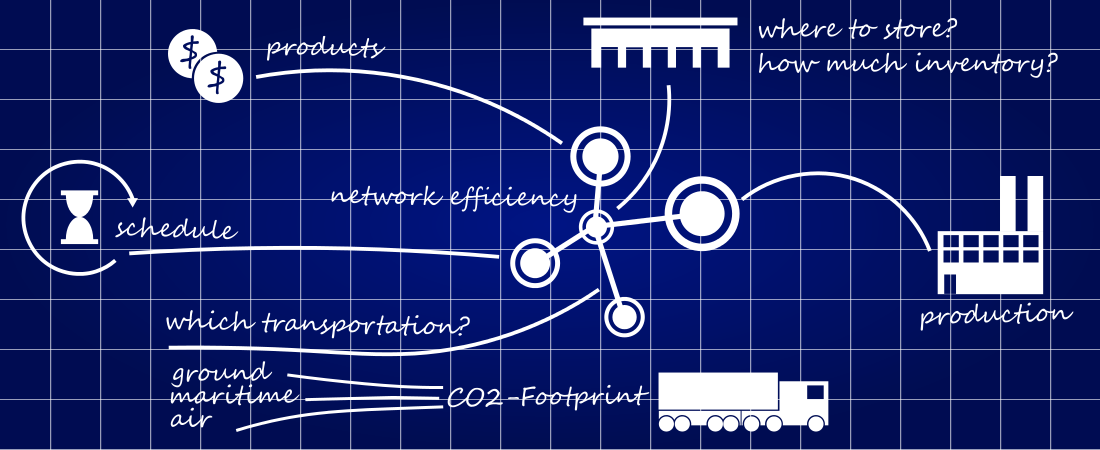Supply Chain Complexity
Today's globalized industries characterize supply chains with complexity due to increasing demand requirements, customer sophistication and uncertainty within markets. Consequently, a higher effort is required to coordinate the interactions and interdependencies between suppliers and customers. Existing business models are taken to their operational limits in reacting fast towards customers’ demand satisfaction while still remaining profitable. Customers’ sophistication increases the amount of product variants and the requirements for flexible resources to source, make and deliver these products. The lack of complexity management within the supply chains is a direct threat to the fulfillment of customers’ satisfaction with the right amount of products, on the right time, at the right place and the right value.
Traditional Supply Chain Management, analyses and defines actions for improvement within the scope of single business functions of isolated of supply chain participants and is therefore not capable to assess the impact of strategic decisions to the overall supply chain’s goals of customer satisfaction and profitability. Understanding how complexity impacts supply chains is fundamental to efficiently assess, identify and manage the increasing demand, product variants and uncertainty characterizing todays’ business environment. The assessment of supply chain complexity must consider the dynamics of the logistics network, as well as the interrelationships between supply chain participants who behave according to different business strategies.
